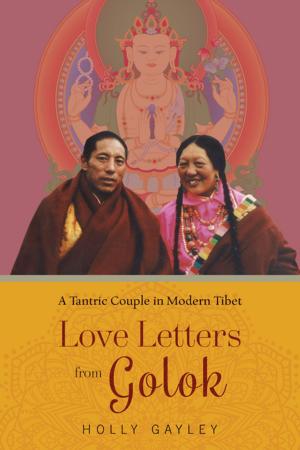Yoga, Karma, and Rebirth
A Brief History and Philosophy
Nonfiction, Religion & Spirituality, Eastern Religions, Hinduism, Health & Well Being, Fitness, Yoga, Philosophy| Author: | Stephen Phillips | ISBN: | 9780231519472 |
| Publisher: | Columbia University Press | Publication: | May 20, 2009 |
| Imprint: | Columbia University Press | Language: | English |
| Author: | Stephen Phillips |
| ISBN: | 9780231519472 |
| Publisher: | Columbia University Press |
| Publication: | May 20, 2009 |
| Imprint: | Columbia University Press |
| Language: | English |
For serious yoga practitioners curious to know the ancient origins of the art, Stephen Phillips, a professional philosopher and sanskritist with a long-standing personal practice, lays out the philosophies of action, knowledge, and devotion as well as the processes of meditation, reasoning, and self-analysis that formed the basis of yoga in ancient and classical India and continue to shape it today.
In discussing yoga's fundamental commitments, Phillips explores traditional teachings of hatha yoga, karma yoga, bhakti yoga, and tantra, and shows how such core concepts as self-monitoring consciousness, karma, nonharmfulness (ahimsa), reincarnation, and the powers of consciousness relate to modern practice. He outlines values implicit in bhakti yoga and the tantric yoga of beauty and art and explains the occult psychologies of koshas, skandhas, and chakras. His book incorporates original translations from the early Upanishads, the Bhagavad Gita, the Yoga Sutra (the entire text), the Hatha Yoga Pradipika, and seminal tantric writings of the tenth-century Kashmiri Shaivite, Abhinava Gupta. A glossary defining more than three hundred technical terms and an extensive bibliography offer further help to nonscholars. A remarkable exploration of yoga's conceptual legacy, Yoga, Karma, and Rebirth crystallizes ideas about self and reality that unite the many incarnations of yoga.
For serious yoga practitioners curious to know the ancient origins of the art, Stephen Phillips, a professional philosopher and sanskritist with a long-standing personal practice, lays out the philosophies of action, knowledge, and devotion as well as the processes of meditation, reasoning, and self-analysis that formed the basis of yoga in ancient and classical India and continue to shape it today.
In discussing yoga's fundamental commitments, Phillips explores traditional teachings of hatha yoga, karma yoga, bhakti yoga, and tantra, and shows how such core concepts as self-monitoring consciousness, karma, nonharmfulness (ahimsa), reincarnation, and the powers of consciousness relate to modern practice. He outlines values implicit in bhakti yoga and the tantric yoga of beauty and art and explains the occult psychologies of koshas, skandhas, and chakras. His book incorporates original translations from the early Upanishads, the Bhagavad Gita, the Yoga Sutra (the entire text), the Hatha Yoga Pradipika, and seminal tantric writings of the tenth-century Kashmiri Shaivite, Abhinava Gupta. A glossary defining more than three hundred technical terms and an extensive bibliography offer further help to nonscholars. A remarkable exploration of yoga's conceptual legacy, Yoga, Karma, and Rebirth crystallizes ideas about self and reality that unite the many incarnations of yoga.















